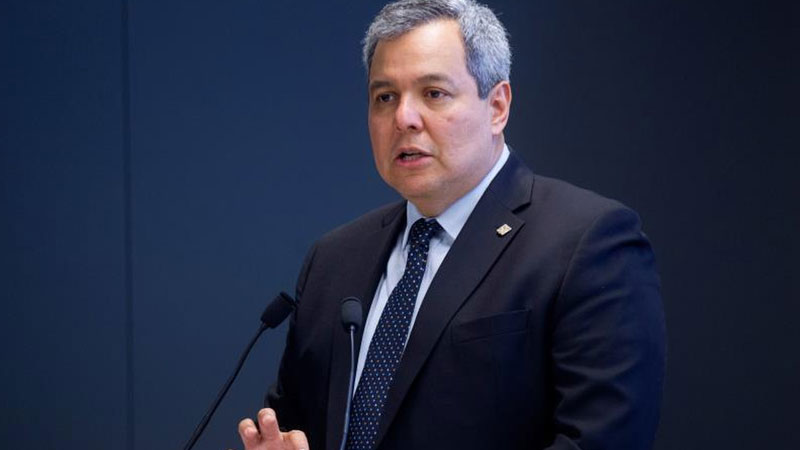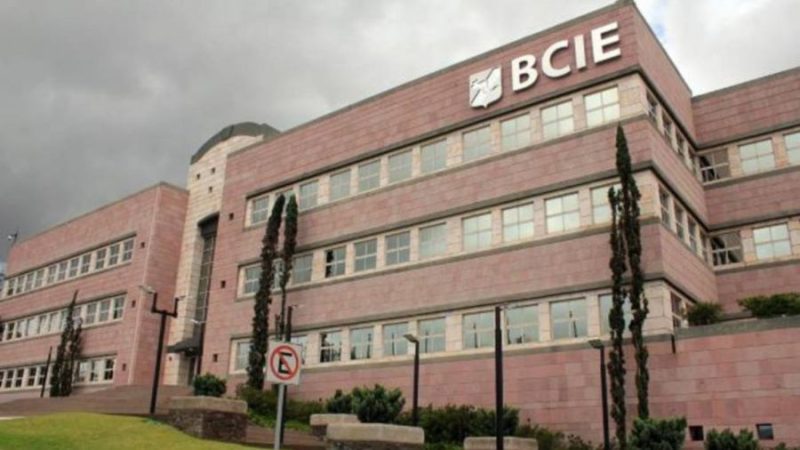The organization has proposed to raise the loan capital from $ 7,000 to $ 10,000 million, although several countries would turn it down due to mistrust.
The Central American Bank for Economic Integration (CABEI) last week held the 62nd Ordinary Meeting of the Assembly of Governors in the city of Mérida, Mexico, attended by representatives of the governments of the different countries that make up the organization.
According to the President of the Organization, Dante Mossi, among the proposals discussed in the assembly, there is that of increasing the capital available to the Bank for the financing it grants to member countries, which currently amounts to 7,000 million dollars and which could increase. to 10 billion dollars.
If this increase is approved, El Salvador could considerably increase its debt ceiling, which, according to Mossi, currently amounts to about $ 650 million, but which could become about $ 1,000 a year if the initiative is approved.
It might interest you: taxpayers have 35 days to request a tax amnesty from the Treasury
This scenario would give way to the regional organization, easing even more the debt for the country, which is already in a delicate situation because, as organizations such as the International Monetary Fund (IMF) have previously pointed out, the debt rate is unsustainable. .
Over the past year, CABEI has been characterized as the multilateral organization that has provided the country the most money in loans, something that has been questioned by several sectors following the deteriorating credit profile of El Salvador and its high risk of default. .
The three most prestigious risk rating agencies Fitch Ratings, Moody’s and Standard and Poor’s have lowered the country’s credit profile to “junk bond” levels.
However, and despite the negative image that El Salvador currently has, the president of the organization said yesterday, during a conference held in Honduras, that “CABEI sees a very low risk of default”.
In fact, the director of CABEI for El Salvador, Luis Rodríguez, said during a television interview with the state channel that 90% of the projects announced by the government are financed by the regional body.
Asked by El Diario de Hoy about why the bank provided funding to El Salvador in a low-rated environment, Mossi said that “since CABEI was founded in the 1960s, it has been created for Central American countries” , for which he added that part of the institute’s objectives is “to lend to Central American countries that have problems with their risk classification, due to political or economic aspects”.
“Conflict of interest”
According to Salvadoran economist Rafael Lemus, one of the reasons CABEI grants loans to countries like El Salvador or Nicaragua are criticized is due to the ease and poor oversight the organization applies when allocating them.
An example is that, in 2021, the government redirected a loan it had previously acquired with the agency to promote the adoption of Bitcoin in El Salvador, a law that also generated negative effects on the markets.
Similarly, CABEI itself recently signed a $ 200 million loan agreement with the country that would be used to offset the cost of the fuel cost subsidy in the country, however, they were redirected for the repurchase operation. of sovereign bonds of 2023. and 2025 and President Nayib Bukele announced last July.
Regarding these changes in the purpose of these loans with respect to the use that would have been given at the time of their subscription, Mossi said in yesterday’s conference that “CABEI loans are for the Treasury (general funds of countries), what the government decides to do with the money is not a decision of the Bank, ”he said.
Also: The government will require at least $ 805 million to purchase outstanding bonds
This statement, according to Lemus, reflects the few requirements and the “free” supervision that the organization maintains over member countries, which would have to do with a “conflict of interest”, according to the economist.
This is because, according to Lemus, “CABEI has a cross-interest conflict; On the one hand, governments sit on the board of directors (they approve the loans) and on the other hand they reach out to apply for those loans “, which would make it logical for low-rated countries like El Salvador and Nicaragua to continue to maintain that source of funding. .
“Those who approve are those who request the loans,” says the economist in reference to the conflict of interest that exists within the institution.
The member countries would be against it
According to a publication in the Nicaraguan newspaper Confidentcial, the proposed capital increase proposed by CABEI was rejected by several countries (Guatemala, Costa Rica and Panama), a position that could be due to the distrust that these countries have “in the management of bank finances. .
This was due to the fact that the former representative of Costa Rica before the CABEI, Ottón Solís, exposed in an article at the end of last year the waste of high salaries and diaries carried out by the institution, which the former member of the council described as the bank’s “abuses of the dome”.
That said, a month after the article, a letter signed by nine member countries called for transparency from the organization’s governors, mostly due to the bank’s deteriorating finances.

According to Lemus, the proposal to increase the Bank’s capital would be aimed at reducing the percentage that these expenses occupy in the general budget of the institution. “Raising capital reduces the inefficiency of administrative expenses,” explains the economist.
Faced with the proposal, Mossi limited himself to yesterday signaling that “there is a willingness” of the governors “to increase the capital of the bank”, and stated that the Assembly showed interest but requested further technical information to support of the proposal, therefore the increase in capitalization could take place until after the next ordinary meeting of the Board of Directors.
“The banker who smiles at dictators”
In addition to these administrative charges, the agency was also extensively questioned for providing funding to countries mired in political crises like Nicaragua, El Salvador and, at the time, Honduras.
For this reason, a recent article published by El Faro indicates that Mossi is a “banker who smiles at dictators”, due to his close relations with the Bukele and Ortega governments.
Also: Bukele’s government aims to improve the credit image and not optimize money, says EMFI
In fact, one of the most criticized points was that the agency continued to provide loans to the Ortega regime also in the context of the repression of city protests that took place between 2018 and 2019, so much so that at the end of 2021 several Nicaraguan citizens living on the Costa Rica, protested against the bank for “financing the repression” in their country.
According to Lemus, the aforementioned conflict of interest is what allows these countries to maintain a flow of funding despite the poor image on the markets, especially since Dante Mossi needs the votes of the representatives of these countries to be re-elected.
However, and due to the history of aversion that some countries have towards the CABEI administration, the economist believes that these governments, such as the Mexican or Costa Rican, which would be opposed to continuing to extend these credits, could put a stop to the situation. and block the re-election of Mossi as head of the body.
–


